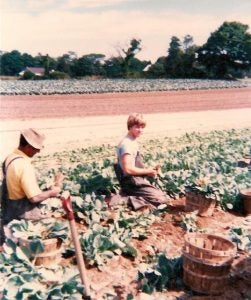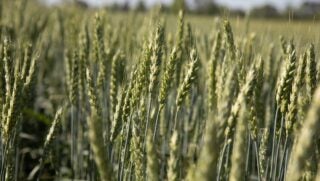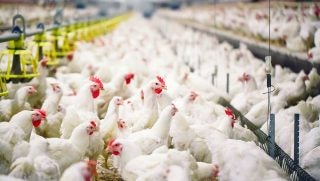Farmer and nomadic aren’t normally uttered in the same breath. We set up shop in one location for the long haul. Of course, my family dares to be different. Webster’s Dictionary would have fits writing a new entry for us. Maybe it could be worded as follows: “4: (as it pertains to urban edge agriculture) an eternal optimist, a vagabond who cultivates land or raises livestock until crowded out by unforgiving waves of development”.
It’s the law of the concrete jungle. Avoid, don’t compete. In roughly 125 years, we’ve played hopscotch three times — from Queens to Nassau County, to another location in Nassau, and then finally to our final destination in Suffolk County. Progressively West to East. I think a highway bisects the last farm in Nassau County. There’s a development front, and we’ve had to deftly ride it just to stay ahead of the killer tidal wave. Cowabunga?
Ironically, in our case it wouldn’t be the ‘burbs that slowly enveloped us, but the whims of well-intentioned locals who wanted to keep the rural character of our fair hamlet.
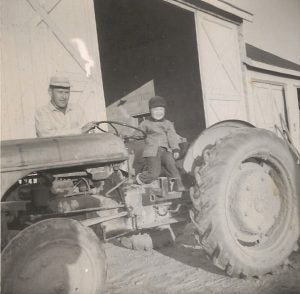
Around 1990, my grandfather was in his early 60s and looking to retire. My mother, who ran the retail farmstand, had since shuttered that operation and moved on to teaching. My uncle was a police officer in New Hampshire. Scratch my grandparent’s kids as prospects. I was the only grandchild (and 12), so no dice there. The only soul who expressed any interest in taking the helm was my grandfather’s nephew, who had worked on the farm since he was a child.
All right, so we have a prospect. Just one problem, the old adage land rich, cash poor. My grandparent’s entire nest egg was tied up in the property. They really had no choice but to put the parcel on the market.
But more drama was in the cards. The state passed a development moratorium on any land adjacent to a local creek. We fell in this category. So adrenaline sets in — fight or flight? Breaking ranks with past history, this was our last stand. We claimed this was a regulatory taking, depriving us of our property. We were mired in litigation for years. During that time, the government made a series of absurd demands to receive a building permit. Their insistence that we conduct archeological digs for Native American artifacts took the cake. Mind you, this was on land that had been tilled for centuries. Don’t you think something would be unearthed by now? Typical bureaucratic bloat, but we humored them.
Finally, the state relented. War weary, my grandfather made an inspired choice that would have a profound impact on not only my career prospects, but lock in two generations of successors.
He brokered a three party deal that would not only allow his nephew to take the reins, but allow him to retire with dignity. First, he sold the property to a local land trust, the Post-Morrow Foundation. Post-Morrow in turn sold the development rights to Suffolk County. But what’s this newfangled idea of development rights? If you think about it, property is structured like a bundle of rights (mining, water, development, etc.), each of which can be unpackaged and sold off separately, while retaining title to the land itself.
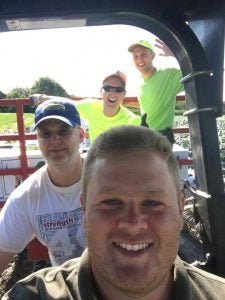
My grandfather then gifted all of the equipment to his nephew. Post-Morrow rented the land back to us. It was an unconventional arrangement for sure — we were now tenant farmers on the old homestead, but since the development rights were sold, it ensured that the property would stay open space in perpetuity.
So this wasn’t a direct generational transfer, more like a side shuffle. But that’s beside the point. The nephew’s son has every intention of taking the reins. Two generations of succession locked in! But it’s all for naught if long-term viability isn’t addressed. In addition to the standard lunacy we deal with in state legislatures and Capitol Hill, farmers grumble at “fluff” (like historic barn preservation) that masquerades as hard hitting policy — fluff should take a backseat to more pressing realities on the ground.
But no amount of rah-rah preservation can overcome weak fundamentals. It’s a band-aid at best. All it does is assure a bankrupt industry flanked by overgrown lots — a tragic memento of a bygone era. I’d hate to write the eulogy for my generation. Future proofing requires more decisive action. Preserve the land, or preserve the farmer?
Tim Durham’s family operates Deer Run Farm — a truck (vegetable) farm on Long Island, New York. As an agvocate, he counters heated rhetoric with sensible facts. Tim has a degree in plant medicine and is an Assistant Professor at Ferrum College in Virginia.
